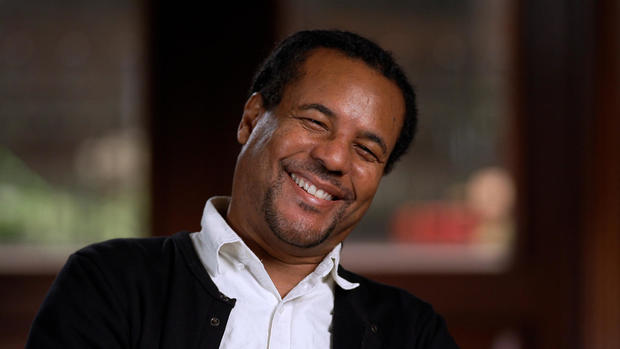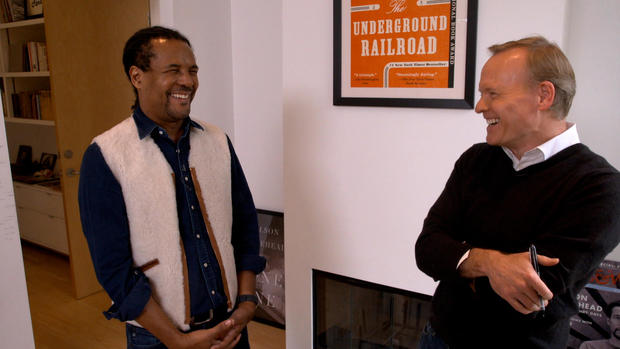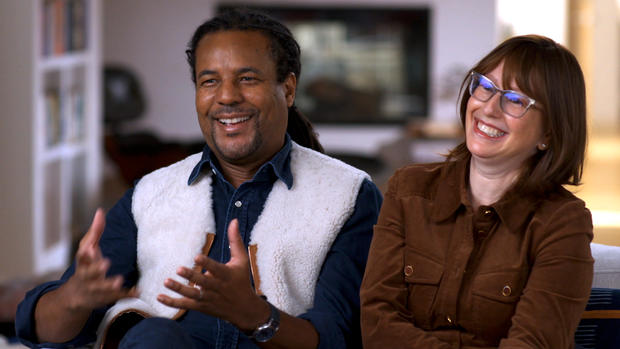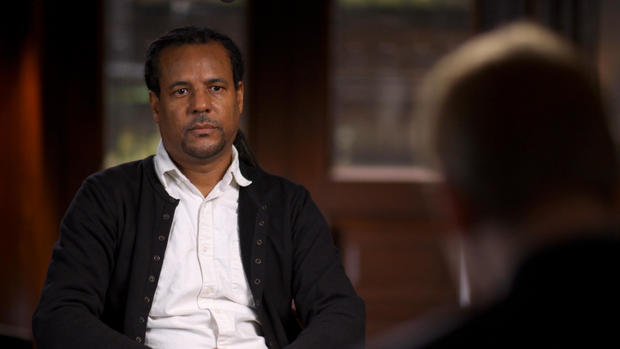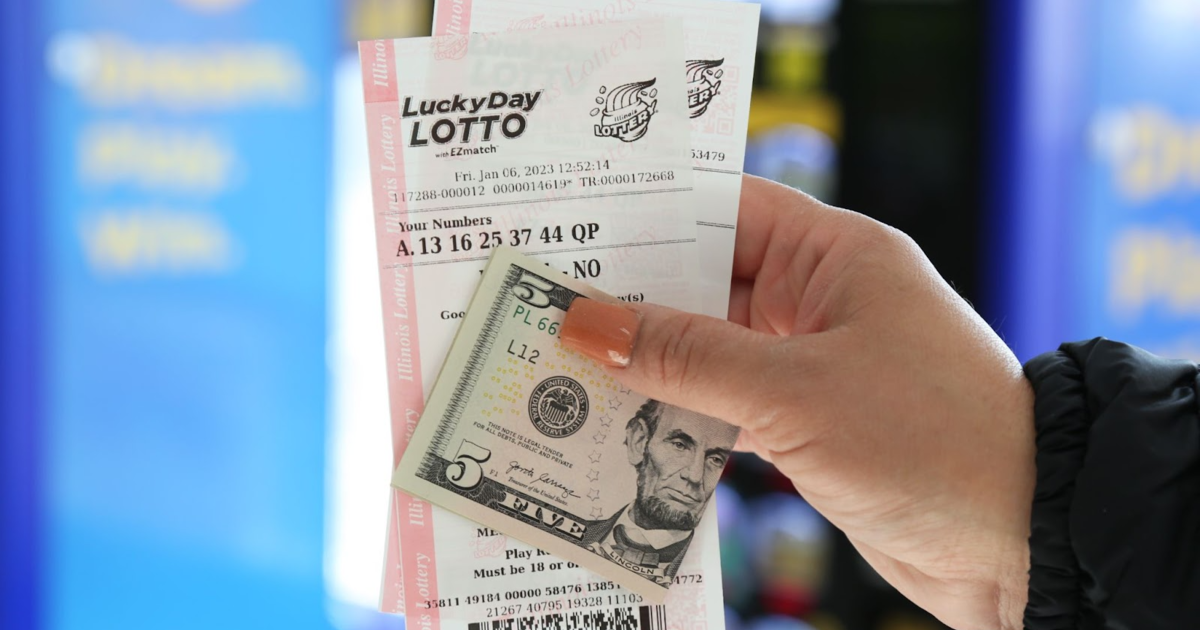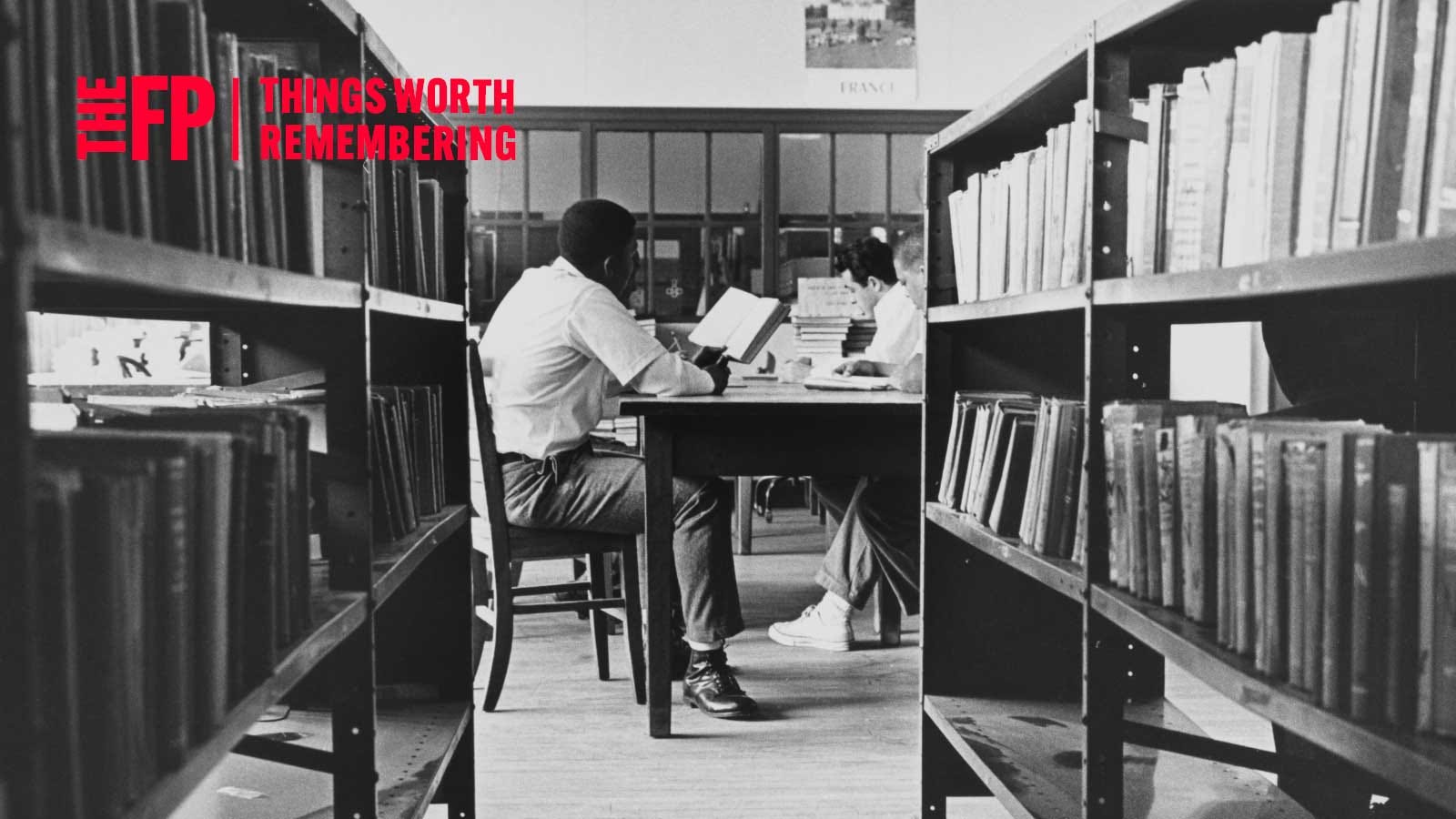Colson Whitehead: The only writer to win fiction Pulitzers for consecutive works speaks with 60 Minutes
The club of writers who have won the Pulitzer Prize twice for fiction is small. It contains just four members. The club of those awarded the prize for consecutive novels is even smaller. Colson Whitehead is its only member. He won last year for his novel, "The Nickel Boys," about the Jim Crow south. In 2017, he won for "The Underground Railroad." Through historical fiction, he has illuminated the past to tell us something about our present. But his work does not stay in one place. He has written about elevator inspectors, zombie hunters and the World Series of Poker. His next book is a heist novel. One of the other four members of the double-Pulitzer club, John Updike, said of Whitehead's style: "His writing does what writing should do. It refreshes our sense of the world."
John Dickerson: Can I ask you about your first lines? "Even in death the boys were in trouble." "The first time Caesar approached Cora about running north, she said, 'No.'" "It's a new elevator, freshly pressed to the rails and it's not built to fall this fast." "I have a good poker face because I'm half dead inside." Those first lines… they're all crackling. Tell me about the process of the first line.
Colson Whitehead: I'm very fond of them. And I think, you know, I'm doing the outline--
John Dickerson: For good reason.
Colson Whitehead: I'm doing the outline and-- and lines are coming, and scenes are coming. And I think there's a point where I do enough research, and I'm so excited to start writing because I've written this first sentence two months before, and I'm like, I gotta put this sentence in the file so I-- I can start the book.
John Dickerson: Do they come to you in this intentional process or are you at the bodega picking up something?
Colson Whitehead: Always the bodega. (LAUGH) Yeah.
John Dickerson: And what happens if-- when that happens? Do you have a notebook?
Colson Whitehead: So now it's-- it's phone. So 4:00 AM, you know, tapping, my wife's like, "You know, turn-- I can't see, it's too bright."
John Dickerson: Do you write for yourself or do you write for the audience?
Colson Whitehead: Really for me, which sounds very selfish. Should I have written a zombie novel? It made perfect sense to me. I grew up loving horror movies and then horror fiction. Is that something I should be doing as a literary author? I don't know. And there's no handbook. You know? And if it gives me pleasure, if it's exciting, you know, our time on earth is pretty short. I should be doing what I-- what I feel like I should be doing.
John Dickerson: Is the propulsive force for you to al-- always be trying to take risks, always running to new, fresh territory?
Colson Whitehead: Well, I think-- I'm not sure why I internalized this lesson but, I've always loved pop culture and I love Stanley Kubrick. And so Kubrick has this war movie, his science fiction movie, his sci-fi movie, it just made sense that you would-- if you're an artist you just do something different each time.
Whitehead's office shelves testify to the range of his interests – science fiction, comic books and
Stephen King novels – relics from Arch Colson Chipp Whitehead's youth in Manhattan. He attended the Elite Trinity School, one of just five Black students in his class, and went to college at Harvard. His writing career started at the Village Voice, to the initial dismay of his parents, who owned an executive recruitment firm.
Colson Whitehead: When I told them I wanted to become a writer, they were like, 'Do you know how much a writer makes?" And I was like, "I have no idea. I just want to write."
But not everyone wanted to read what he had to say. The first novel he tried to sell was rejected 25 times and the book was never published.
Colson Whitehead: You know that's what made me a writer, not being a journalist or being 12 and thinking, "I wanna write Stephen King-type horror novels." I realized there was nothing else I could do that would sorta make me whole. And no one else is gonna write it. And so I have to start another one.
John Dickerson: So the failure was what told you who you were, in a sense?
Colson Whitehead: Yeah. I mean, I had n-- I had no choice. I literally had no other options.
For much of the last year, Colson Whitehead and his wife, literary agent Julie Barer, have quarantined with their children at their home in Long Island.
Colson Whitehead: I mean, the one regret is that I-- everyone knows how many naps I take a day. Like, I'm just always, like, laying down.
John Dickerson: Julie, what did you discover about his process, other than the naps? (LAUGH)
Julie Barer: I discovered that he-- (LAUGH) he listens to really loud music when he works.
Whitehead cycles through a 3,000-song playlist that is as eclectic as his writing topics—Thee Oh Sees, Johnny Cash, David Bowie. Feet away, Barer negotiates for her clients. It's a swirl of literary activity born out of a moment of artistic doubt.
John Dickerson: Was there a moment where you said, like, "I have to do something to make money, because writing isn't doing it."
Colson Whitehead: I do remember after my poker book, you know, it came out, and I was—and, no one really liked it. And-- (LAUGH)
Julie Barer: I liked it. (LAUGH)
Colson Whitehead: I think it's a great book. Uh, I was like, "So you just, like, write a book, and it comes out? Then write a book again--"
Julie Barer: I remember this conversation.
Colson Whitehead: "And then write a book again until, like, you die. That seems, like, so terrible." And I was like, "Should I go to cooking school?" Like, "I don't know. I like cooking." Like-- and then, as always happens I'm like, "I have to get back to work. This sucks." I'm like-- (LAUGH) I just have to, you know, reconnect with, you know, what I love.
After that poker book, he had another book outlined, but Julie encouraged him to drop it and instead write the Underground Railroad.
Julie Barer: And he started talking about the idea for "The Underground Railroad." And he was like, "I don't know if I can do it. "I've just-- I've been kicking around this idea for a really long time." But I knew he could do it. And so I had to do a little nudge. (LAUGHTER)
Colson Whitehead: That sounds like… Yes, she was very enthusiastic.
Julie Barer: I was like, "Put the other book away."
"The Underground Railroad" won the 2016 National Book Award. It was a New York Times bestseller for 49 weeks and has been published in more than 40 languages.
Colson Whitehead: Croatian, and Chinese, and...
John Dickerson: And did any of them change the title in a way that's-- you know, sometimes when it's in a foreign language, it's something like the "Railroad That Is Not Above the Ground."
Colson Whitehead: I don't think so. There was one country that shall remain nameless (LAUGH) who put the subtitle "Black Blood of America." And I was like, (LAUGHTER) "What are you talking about?" (LAUGHTER)
Last December, we went with Whitehead to Plymouth Church in Brooklyn, a hub of the Underground Railroad. We asked him about his book's magical rail system that delivers his heroine to different eras of tragedy in black history—from slavery to lynchings to forced sterilization.
John Dickerson: The fact that "The Underground Railroad" is an actual railroad, why was that important and what did that help you do in terms of giving people a new way to look at something that is-- that they think they know?
Colson Whitehead: Well, the premise is this fantastic conveyance will take you around different points in history--, these alternative Americas. And so immediately it's not real 19th century America and I can do what I want. And so sometimes by not coming at things the right way, by coming at them sideways, we see them-- see them a different way and they make more sense.
John Dickerson: Could you have written that book ten years earlier?
Colson Whitehead: I had the idea in the year 2000, I was like, this is a great idea, it's cool, the railroad is gonna be real and I'm like each state is gonna be like "Gulliver's Travel," a different alternative America. It is so good I would screw it up if I did it right now. I didn't think I-- I was serious enough to write about slavery in the way-- you know, with the gravity that it required. I didn't think I was a good enough stylist or craftsperson to do it.
John Dickerson: Was there a puzzle-- part of the puzzle that you thought, okay, I'm ready to solve this piece now?
Colson Whitehead: I think deciding on the female protagonist-- was an-- important piece. Being an enslaved woman, it's much different than being an enslaved man. Your body is not your own, obviously, and you're supposed to pump out babies because more babies means more property, more slaves. And when you become a woman you enter a new sort of more terrible phase of-- of being enslaved. And I thought that was worth writing about.
And now after selling two and a half million copies, "The Underground Railroad" is being adapted into a limited series by Oscar-winning director Barry Jenkins, and starring Thuso Mbedu as its protagonist, Cora, who journeys out of slavery like Whitehead's own relatives.
John Dickerson: You have enslaved ancestors.
Colson Whitehead: Yes. Yeah, yeah.
John Dickerson: And was that part of your thinking as you were writing?
Colson Whitehead: I was thinking about the sort of existential terror of being descended from slaves.
John Dickerson: Your own existential terror.
Colson Whitehead: Yeah, I realized that, you know, I shouldn't be here. It's just-- it's a real miracle that this person wasn't killed when they were kidnapped in Africa, in the Middle Passage, on this plantation.
The existential terror that life can be altered forever in an instant is at the heart of Whitehead's 2020 book, "The Nickel Boys," motivated by the police killings of 2014.
Colson Whitehead: It was the summer of, of Michael Brown being killed in Ferguson, Missouri and the protests, Eric Garner being killed in, in, uh, Staten Island. And I came across the story of the Dozier School that August.
Whitehead was propelled by a series of stories, which detailed survivors' accounts of physical and sexual abuse at the Dozier Reform School for Boys, that operated here in the Florida Panhandle for more than 100 years before it was closed by the state in 2011. More than 50 unmarked graves were discovered on the site.
John Dickerson: You said at one point with these two books, "I've been working in the space of very little hope." What does that mean?
Colson Whitehead: To create a realistic world, a realistic plantation, a realistic Florida in the South under Jim Crow, it's bleak and it's terrible.
John Dickerson: That must be, emotionally, quite difficult.
Colson Whitehead: It is and definitely the last-- writing these, these two books back to back about slavery and Jim Crow, was very depleting. It helps that people have shared their stories, whether it's a former slave or a former student and opened themselves up in that way that gives me permission to try and find my way into their story and put myself in their, in their shoes.
John Dickerson: You talked about the existential question of you're lucky to be here in a way. Chance, being in the wrong place at the wrong time can determine the whole outcome of your life.
Colson Whitehead: Well you know, I mean, so much of what happens in The Nickel Boys and Underground Railroad resonates with what we see every day in our headlines. And they are connections I don't have to force. Young Black people being murdered for being in the wrong place at the wrong time with the wrong skin color. And if they'd left the house five minutes earlier, their whole lives would have been different.
John Dickerson: Have you felt that way in your life at times? "At this moment, it could go either way," being either a young Black man or even now?
Colson Whitehead: I think about the way-- what I feel when I see a police-- a police car or four cops hanging out in front of the subway. There is an instance of, "Are they are here for me?" And I think about how strange it is just to walk through your own city and have that-- have that thought. And I think, "Am I alone?" And I realize I'm not alone.
In total, Whitehead's books have sold over 4 million copies. His next book, "Harlem Shuffle," part crime novel, morality play, and an examination of race and power, has a signature start: "Ray Carney was only slightly bent when it came to being crooked."
John Dickerson: There are a lot of aphorisms about writing, you know? "Write what you know. Write your heart." Do you all agree on all of those aphorisms?
Colson Whitehead: We don't talk about things on that kind of level.
Julie Barer: Yeah, I mean use one that Colson, says. "You can do anything if you're-- if you're good enough."
Colson Whitehead: You know the current debate's over who can write about what, and writing across race and class and gender. And it's only when the – you know you screw it up that people get angry and I think rightfully so.
Julie Barer: But I hear people ask him sometimes at readings, you know, "Is it hard to write from the point of view of a woman?" And he's like, "I'm a writer. That's my job… is to write from…"
Colson Whitehead: Or "I'm a human being."
Julie Barer: Right.
Colson Whitehead: You know.
John Dickerson: You're saying, "I'm a human being, this is what I do as a human being." But you're also doing it as a writer, which has-- it has this secondary benefit, which is that it works really well with your audiences.
Colson Whitehead: What was very heartening was the realization that if it's true for me, it must be true for at least one other person. And so what I'm saying won't come off as crazy. And if there's one person, there's a dozen. And then why not a thousand. And if I can find the right combination of words to express my inner truth, then other people can see it the same way. And so, I think we're all in this together. And if-- and if I can find the sentences and words arranged in the right way, where people can recognize that, then that's, you know, I've done my job.
Produced by Sarah Koch. Associate producer, Chrissy Jones. Broadcast associate, Claire Fahy. Edited by Patrick Lee.
